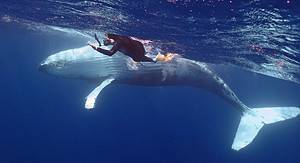Continue reading for our analysis...
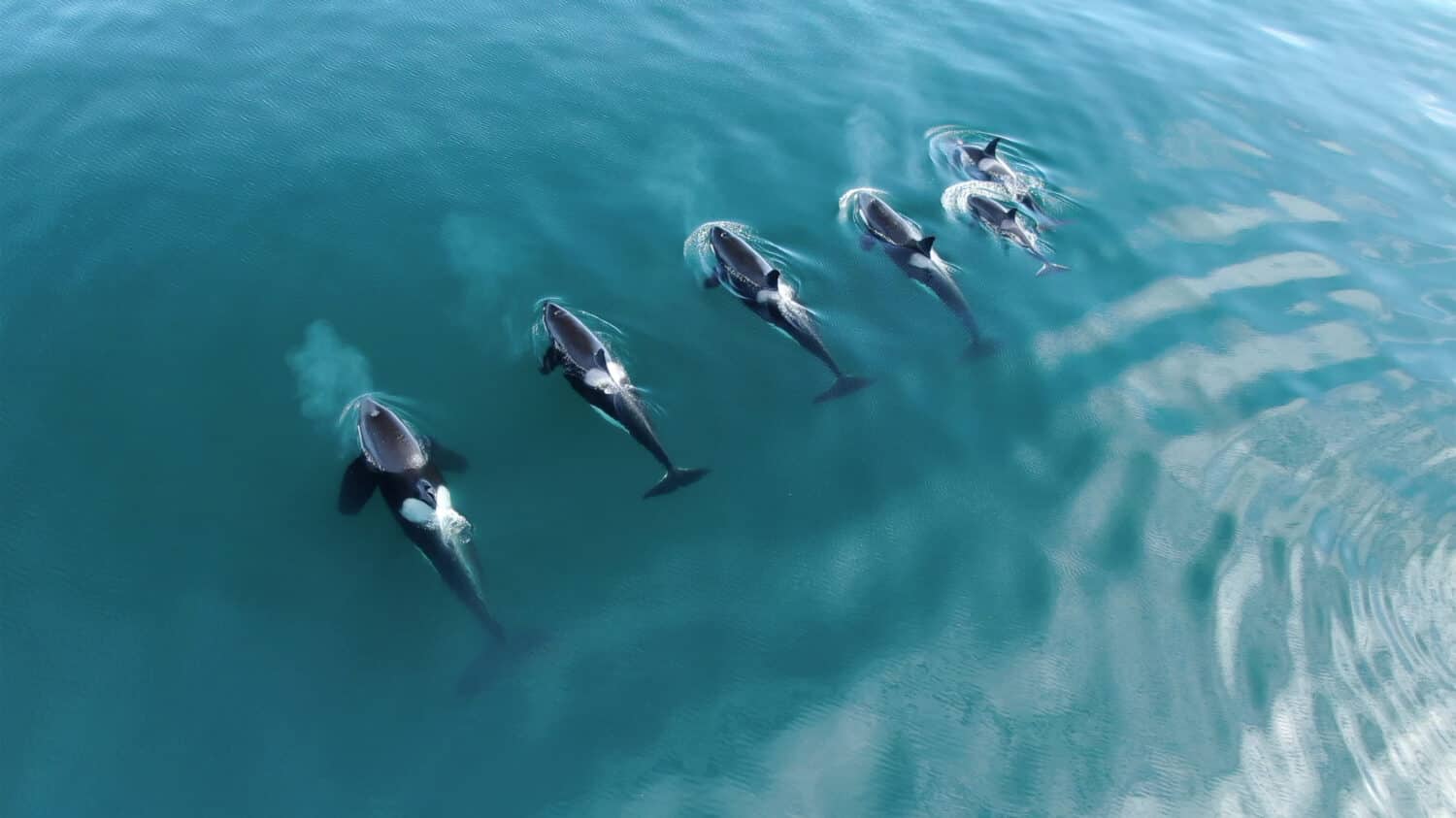
In between the human screams of delight, you can clearly hear these orca singing. The scientific name for this is vocalization. See the video to join in this special experience as the orca check out a boat.
Why Do Killer Whales Make Sounds?
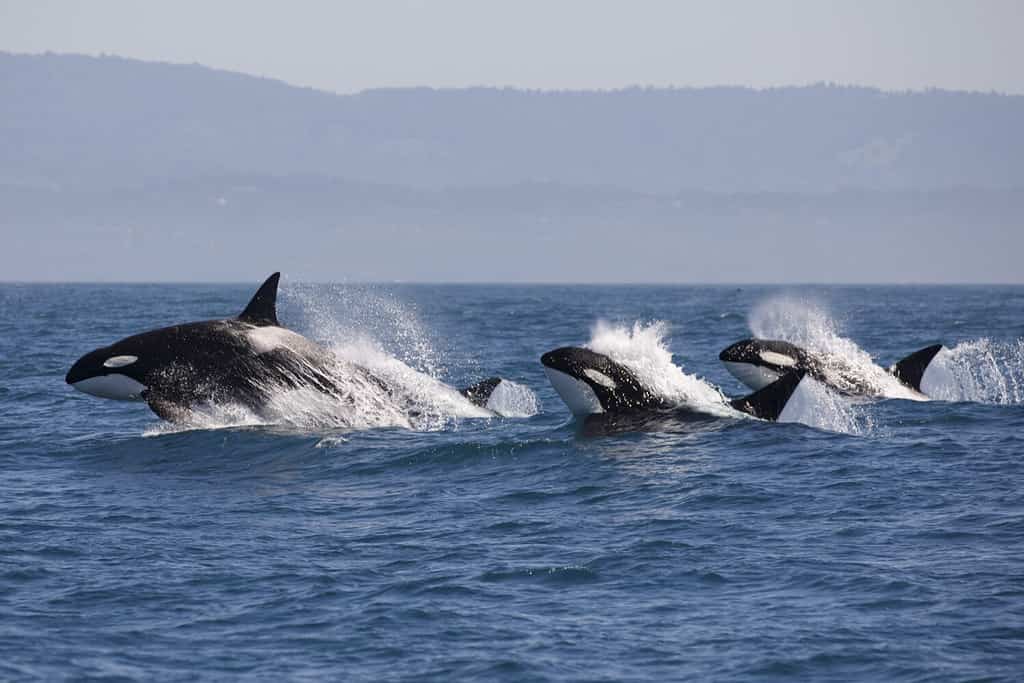
Killer whales use sound communication for both communication and navigation.
©Tory Kallman/Shutterstock.com
We know that killer whales (and other species of sea creatures) can make sounds. We also should not be surprised by this, after all, sound travels at 0.9 mi/sec in water which is more than four times faster than in air. Sound communication is a lot more useful than sight when you are traveling around in murky water and visibility is very poor!
Killer whales use sound communication for both communication and navigation. They can actually make a range of noises including clicks, whistles, low-frequency pops, and pulsed calls.
How Do Killer Whales Make Sounds?
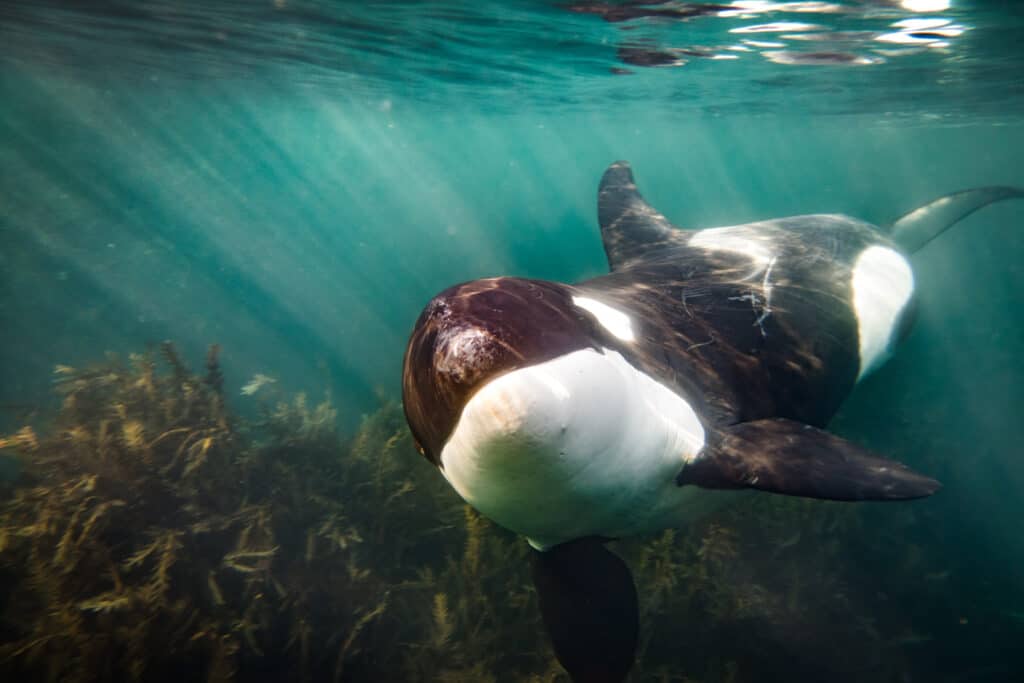
Orcas use sound to communicate with others in their pod.
©Nick Grobler/Shutterstock.com
They make their various sounds by moving air between their nasal sacs and the area around their blowhole. Humans also make sounds by moving air but in a different way. We force air through our larynx where our vocal cords vibrate and produce a sound. We change that sound by moving our throat, tongue, mouth, and lips.
Killer whales, on the other hand, do not have vocal cords. Instead, they have a structure called the dorsal bursa in their nasal region which includes projections called ‘phonic lips’. As air is forced past them, it creates a vibration that produces a sound. They don’t have to release air from their body to produce this sound.
Communication Sounds in Killer Whales
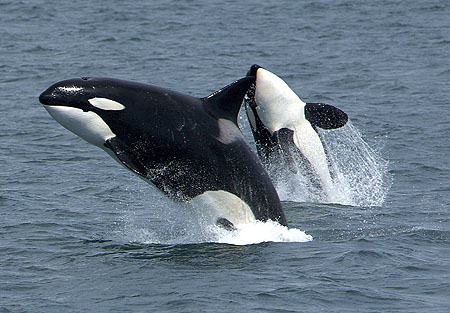
Killer whales can produce a call that always sounds the same – this is called their stereotyped call.
The most common sound produced by killer whales is the pulsed call. Scientists now think that the calls have a connection with group recognition and coordination of behavior perhaps during hunting. The frequency of pulsed calls is 0.5 to 25 kHz, with peak energy at 1 to 6 kHz. The whales can produce a call that always sounds the same – this is called their stereotyped call. Within a pod, there will be a certain repertoire of stereotyped calls which makes up a dialect. In the same way as humans from a certain area tend to sound the same. However, this should not be confused with human language.
Whilst there may be some overlap of certain calls between pods, no two pods will have the exact same repertoire. Amazing!
Is it Normal For Orcas to Make Sounds?

©Willyam Bradberry/Shutterstock.com
There are two main reasons that orcas will produce sounds. One is for echolocation or navigation, and the other is for communication and each family unit, or pod, has a different dialect that is unique to them. Orcas, or killer whales, will make sounds in a variety of ways, whether it is by whistling, clicking, pulsed calls, or jaw claps to speak with other family members. Much like a human, orcas will learn their language, as well as inherit it from their family unit.
There are even pods of killer whales that speak different dialects that allow them to communicate with other killer whales that are outside of their pod group, although this is not common among the species and isn’t known to occur with all orcas.
Thank you for reading! Have some feedback for us? Contact the AZ Animals editorial team.






